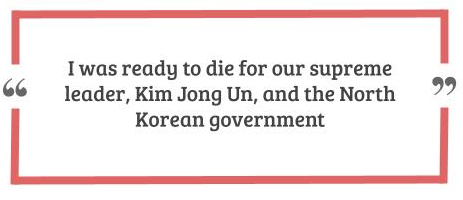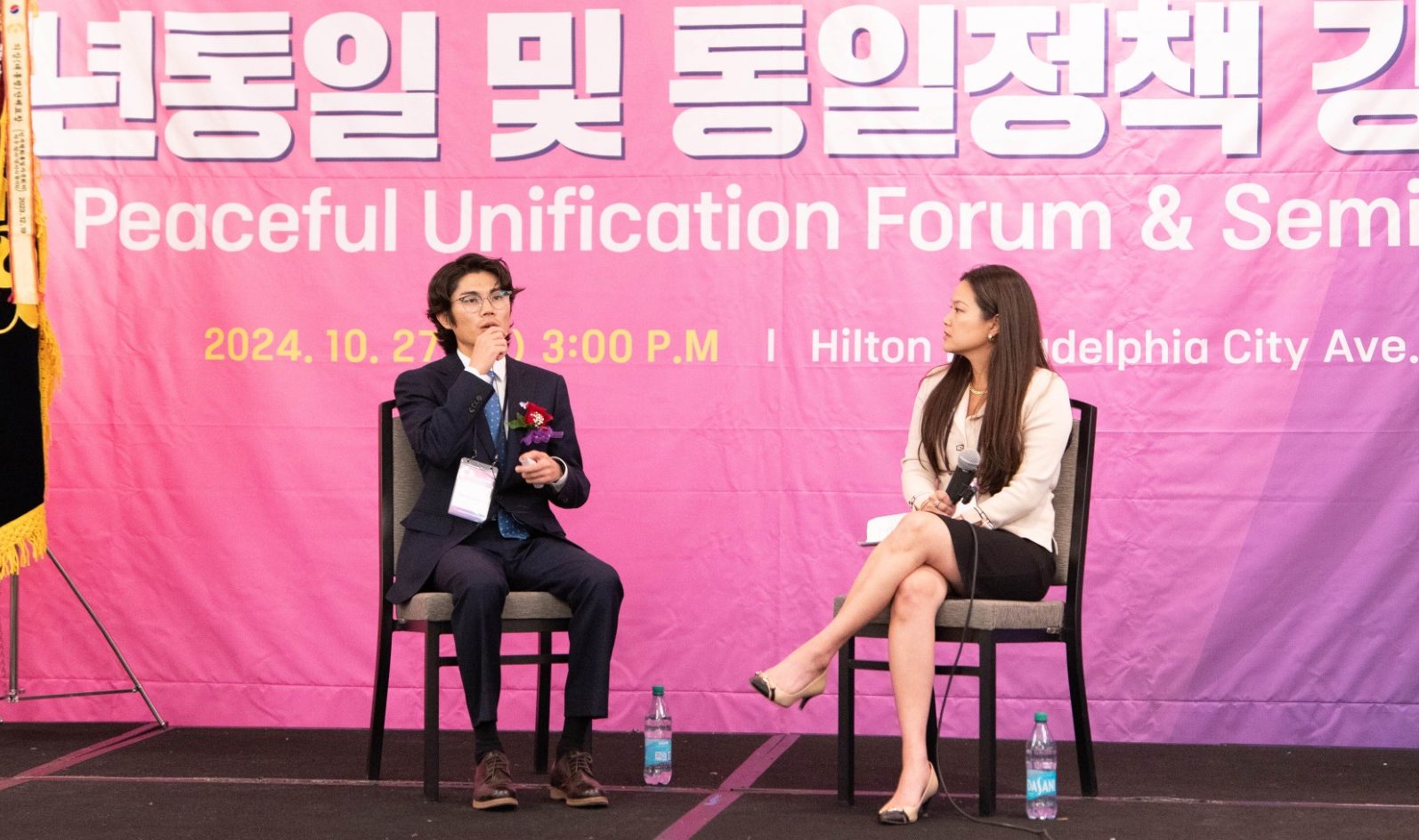When most people think of North Korea, Hollywood portrayals like “The Interview” may evoke grandiose depictions of Supreme Leader Kim Jong Un and his arsenal of nuclear missiles. Since the unofficial conclusion to the Korean War, North Korea has spiraled into dictatorship and poverty, as the North Korean people suffer tremendously under the heavy hand of Kim Jong Un. However, modern media places exaggerated emphasis on Kim Jong Un and North Korea’s military and government in Pyongyang, often forgetting the plight of the ordinary North Korean citizens that comprise nearly all of the vast countryside. One such citizen, Sunghyuk An, seized an opportunity to escape the hardship and chose to live his life on his own terms. Here is his story.

Life in North Korea
Initially, An lived in Chongjin of the North Hamgyong province of North Korea. His family, part of the lowest class in North Korea, struggled to gather food as his mother and father worked unpaid jobs as a factory worker and carpenter, respectively.
“70% [of the kids] couldn’t come to school… because they were forced to go to the market or go to the mountains to get some food,” said An.
This immense poverty was, in part, a result of the failed currency reform in 2009, which crashed North Korea’s economy and caused mass inflation. As a result, the prices of household products like rice skyrocketed from the USD equivalent of 1 cent to $3 per kilogram.
“After the currency reform in 2009, I couldn’t bring any lunchbox to school everyday, so I had to come back to my home every lunchtime,” An said. “I was only able to eat some kind of soup made with corn.”
In school, An learned basic subjects like English and mathematics, but was forced to attend propaganda meetings since the age of three. At these meetings, An would hear stories glorifying North Korea and its rulers like Kim Jong Il — the predecessor to Kim Jong Un — who North Korea claimed fought against the Japanese army when he was only five years old.
“Because he is God in North Korea, I believed all the propaganda from school,” An said.
Besides the glorification of its dictators, North Korean propaganda plays a large role in brainwashing the youth into joining the Korean People’s Army (KPA). Often, propaganda proclaims that it is the highest honor to dedicate and give one’s life for their supreme leader.
“I wanted to be a soldier in the Korean People’s Army,” An said. “My dream was to become a general in the KPA, but at the time, my father told me that’s not going to happen because our family’s background is quite bad.”
Eventually, however, An grew weary of the poverty and classism, sparking a resentment within him toward the North Korean government.
“I was ready to die for our supreme leader, Kim Jong Un, and the North Korean government, but they didn’t give me any chance to be a soldier,” An said.
Furthermore, An and his family suffered from the direct mistreatment and neglect of the North Korean government. Only a year after joining the KPA, An’s cousin died of starvation. An himself did not escape the effects of mistreatment either, as he was mobilized to unpaid labor for the North Korean government in December 2010.
“I was forced to work at a construction site and I had to move big stones, but I couldn’t lift it,” An said. “It crushed my fingers so I lost one of my fingers because they couldn’t treat me in a proper way.”
Even after An’s escape, his family members that remained in North Korea secretly told him about the injustice they faced from the North Korean government.
“There was one main road that might be used by Kim Jong Un someday, so North Korean officials came to that road, and they looked at our neighborhood and said, ‘That looks ugly from this road, just destroy it’ and they did, so my family became refugees and had to stay outside for six months before they got a new house,” An said. “The North Korean government gave them a harmonica house which doesn’t have any backyard to plant any vegetables… they lost their land and everything.”
Altogether, the poverty, injustice, and suffering that An and his family experienced in North Korea culminated in their escape to South Korea and eventually the US.

New Life In South Korea and America
After decades of abuse, some North Koreans refined covert routes and strategies to cross the border into China or South Korea. One such group of these people, nicknamed “brokers,” offered to provide passage out of the country for a certain price.
“I was 15 years old and my aunt, who settled down in South Korea, sent brokers who knew the route to cross the river so they brought us to the border area and sent us to China,” An said.
After crossing the Tumen River and into China, An’s family attempted to travel toward South Korea to reunite with their family members there. However, Chinese police caught An’s mother and detained her.
“The brokers just ran away, but my mother had all the money we had,” An said. “So we stayed near the police station for seven hours and then we decided to just go toward Beijing, which is close to South Korea. We just started to work.”
Fortunately, one of An’s relatives worked in the local Chinese government, so the police approached him and turned An’s mother over, allowing An and his father to reunite with her. Following this, An and his family successfully escaped to South Korea, gaining new opportunities and better lives. Adjusting to the societal differences and education, however, did not prove to be an easy task for An.
“Even though I studied hard in North Korea, South Korea has a different education system… so I had to study a lot of things,” An said.
Additionally, An faced challenges with connecting with his peers, who would often discriminate against him because they were jealous that his nationality meant he escaped South Korea’s mandatory military service.
“There is some discrimination from South Korean students who were not educated… because I did not have to join the military in South Korea,” An said.
However, An did not allow the treatment to hinder his success, as he graduated with a Bachelor’s degree in Political Science and Diplomacy at the highly prestigious Yonsei University, one of the best private universities in all of South Korea. Furthermore, An opened himself to opportunities to reconnect with his former life in North Korea, taking on an internship with Human Asia, a human rights organization in Asia, and interning with the well-known news agency, Reuters. In his time with Reuters, An wrote exclusively about news regarding North Korea and situations in the capital, Pyongyang.
“The articles and videos that I made are all about Pyongyang or Kim Jong Un because consumers don’t care about ordinary people’s lives,” An said, highlighting one of his largest concerns. “I think Americans have a very basic level of understanding about North Korea because they don’t know anything about the countryside in North Korea. Even though some Americans traveled to North Korea, they only visited Pyongyang. In my view, Pyongyang is not North Korea, it’s a totally different country. They only know about Kim Jong Un or nuclear weapons or missiles. I believe they don’t know about ordinary people’s lives.”
Seeing this lack of acknowledgement for the common citizen, An endeavored to bring more international attention to the humanitarian issues that North Koreans face.
“I made a radio which is called Sabujak and I interviewed over 150 North Korean defectors in South Korea. I focused on why they escaped and their lives in North Korea,” An said. “I wanted South Koreans to know about ordinary people’s lives in North Korea and I was trying to integrate South and North societies.”
The Sabujak podcast can be found on Instagram (@podcast_sabujak) and they have an AudioClip (오디오클립) where people can listen to several seasons of the full podcast.
Now living in America, An attends Syracuse University, pursuing his Master’s degree in International Relations.
“In America, I don’t have to be North Korean… I’m just an international student studying politics,” An said. “On campus, even though I say that I’m from North Korea, my professor tells other colleagues to not ask me any difficult questions like I faced in South Korea.”
An is one of roughly 200 North Korean defectors living in the United States, making him — and his fellow defectors — among the very few vessels for truth regarding the humanitarian crisis in North Korea. While many of these defectors fear public recognition and discrimination, An pushes forward with his attempts to make a difference in how the rest of the world views North Korea: a nation composed of oppressed citizens, not just Kim Jong Un and his menagerie of weapons.




